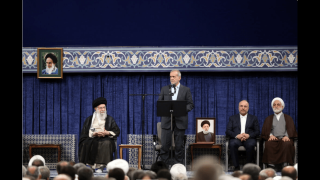What Iran’s New President Means for the Country and the Region
Whatever his limitations as a reformer, Pezeshkian’s election is a step in the right direction. However, expectations about what he can accomplish should be realistic.
Considering Trump’s actions during his first term in office, this is understandable. While Biden unofficially declared the JCPOA dead in 2022, there has been progress in fostering closer ties. For example, in September 2023, Iran released five Americans as part of a prisoner exchange that saw Iran gain limited access to $6 billion in frozen funds. Trump’s re-election is a scenario that Tehran is treating as a foregone conclusion. During the election, hardliners argued that a strong response would counter Trump due to Iran’s ability to utilize its network of regional proxies to attack the United States’ Middle Eastern allies as well as American military infrastructure in the region. Pezeshkian and other reformists have argued that in order to manage Trump’s unpredictability, a more conciliatory strategy is needed.
Whatever his limitations as a reformer, Pezeshkian’s election is a step in the right direction. Expectations about what he can accomplish, however, should be realistic. He has limited powers and must operate in a system where influence is split between multiple actors whose interests will clash with his own. He will also have to plan for how to deal with a United States whose own foreign policy direction could drastically change in the next few months.
Joe Boueiz is an independent analyst focused on international relations in the Middle East. He is a former Middle East Intern at the Center for the National Interest and a graduate of the Lyndon B. Johnson School of Public Affairs. Follow him on LinkedIn.
Image: Khamenei.ir.

